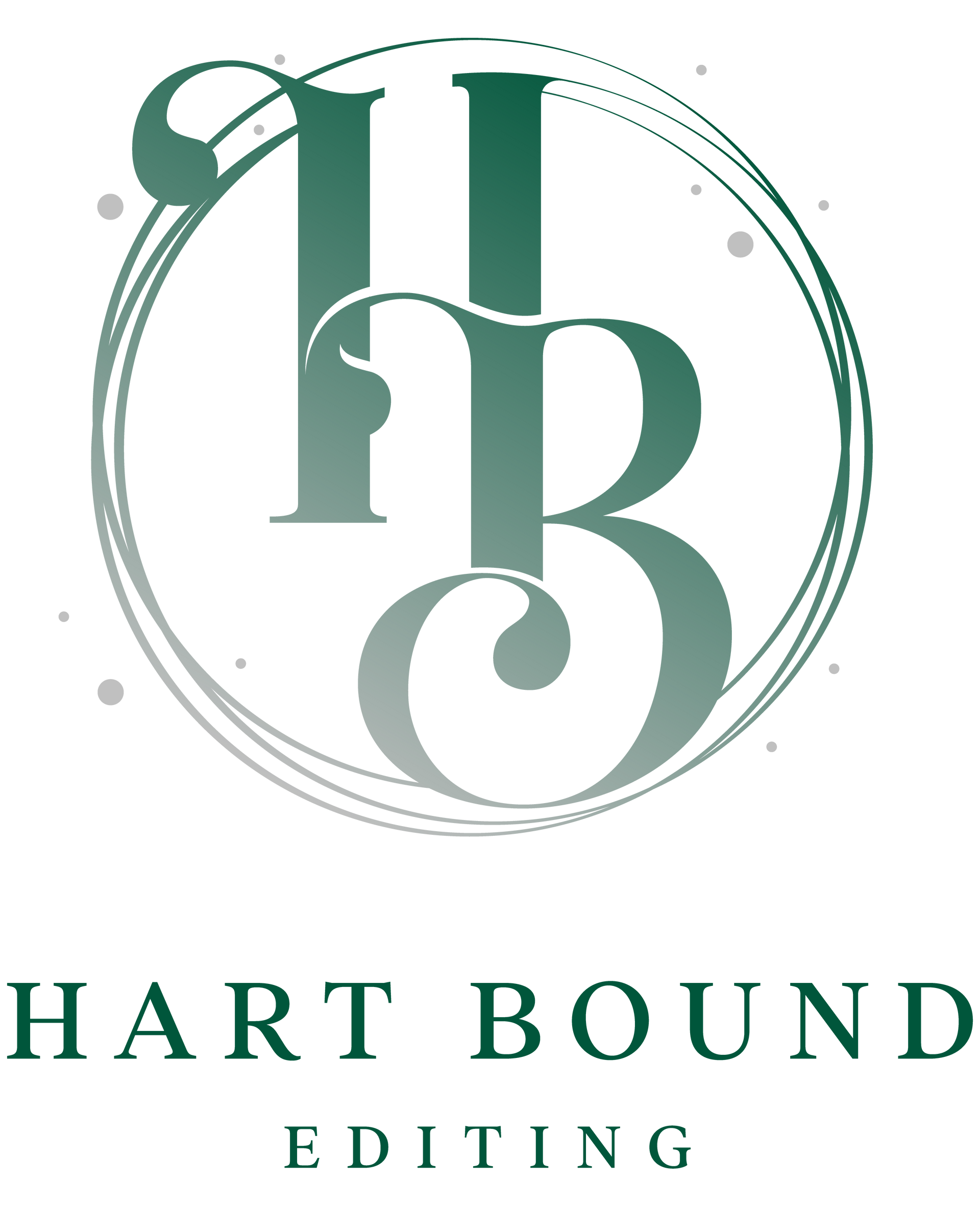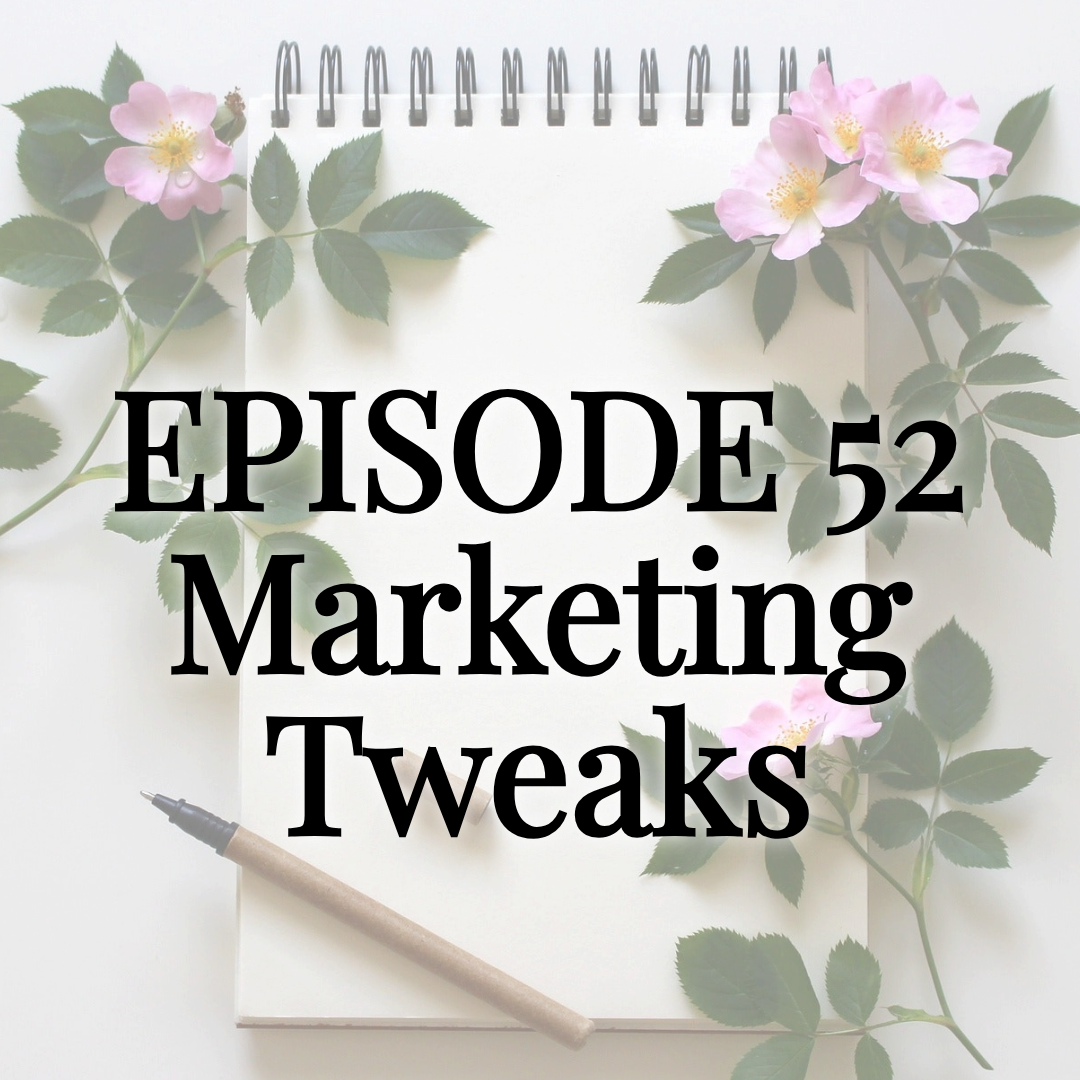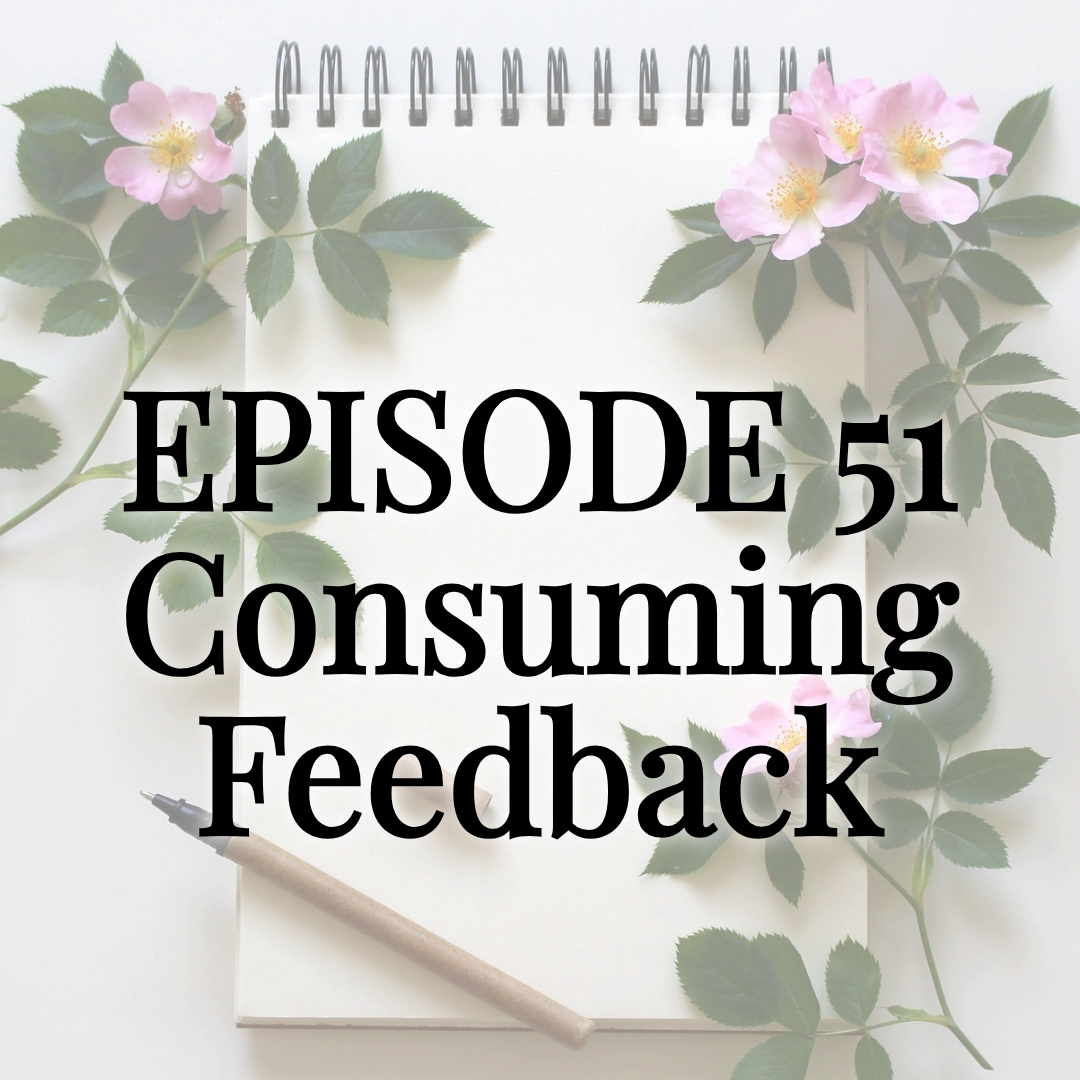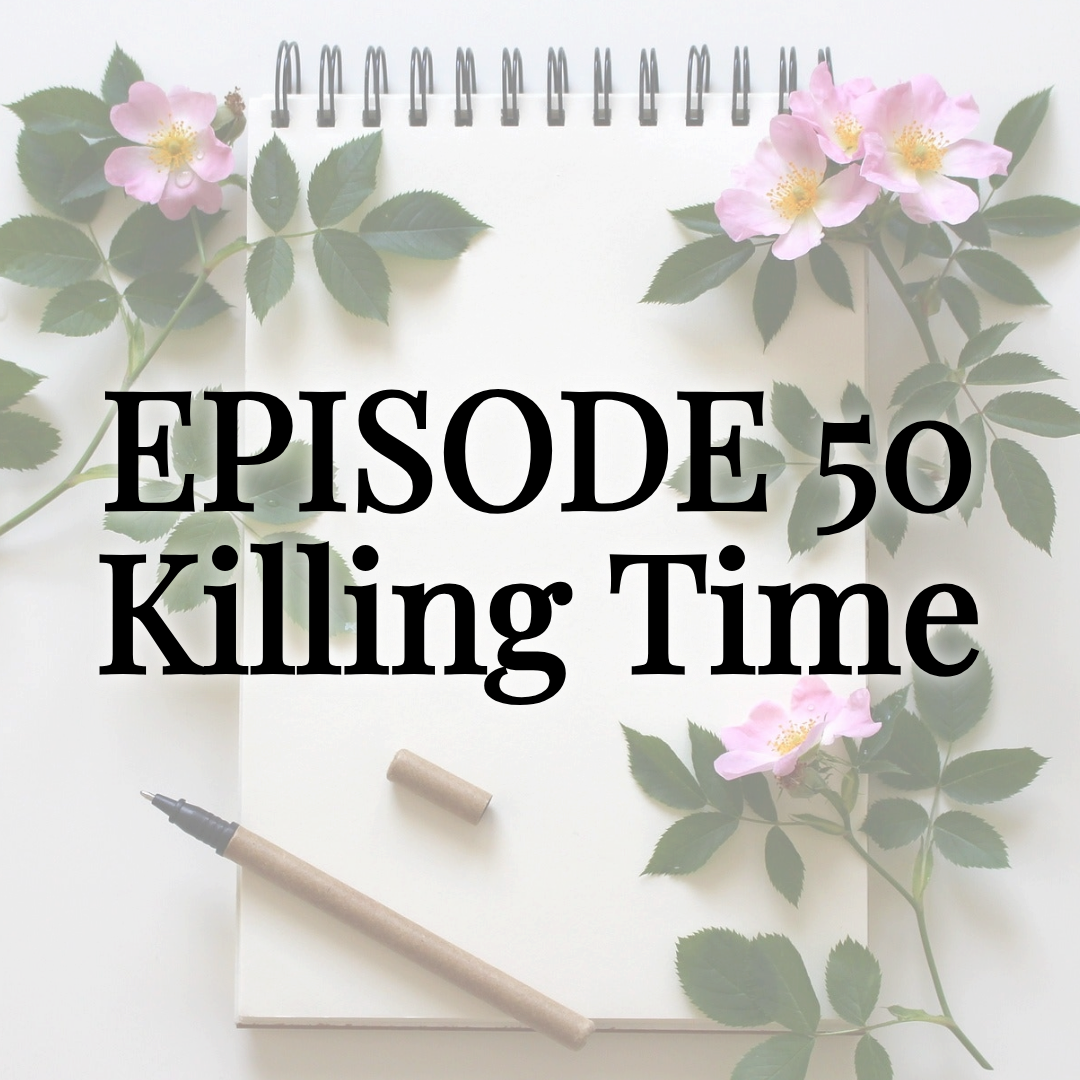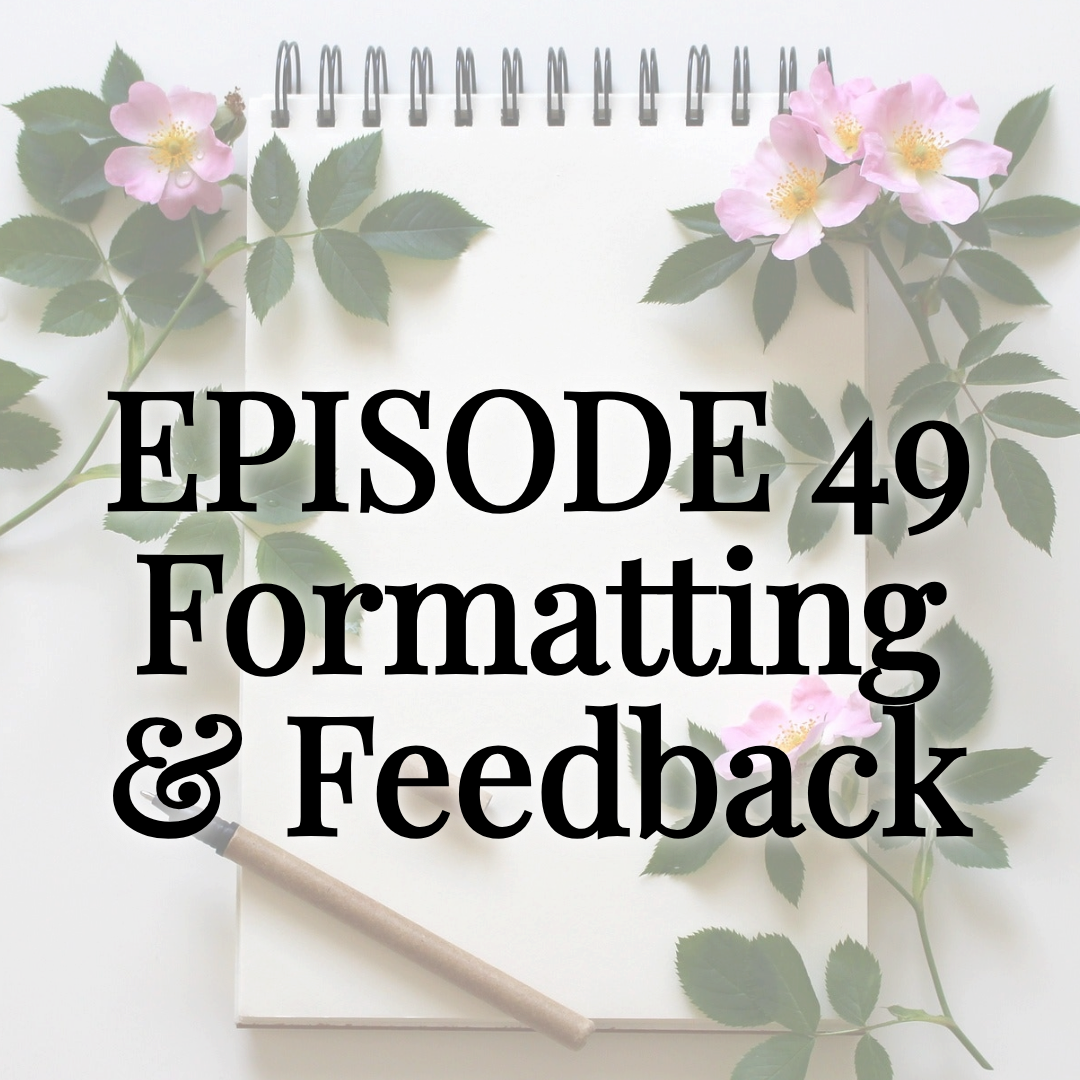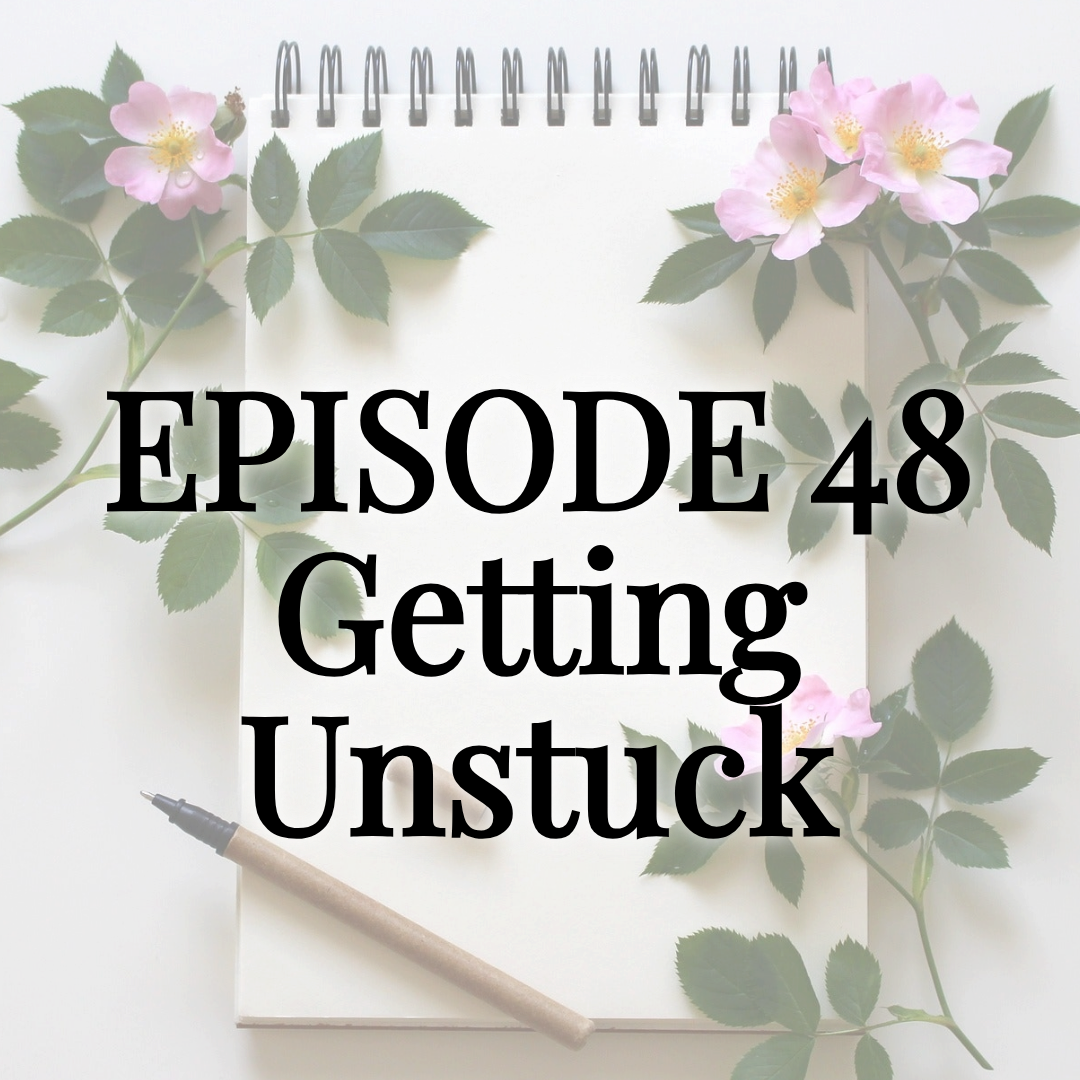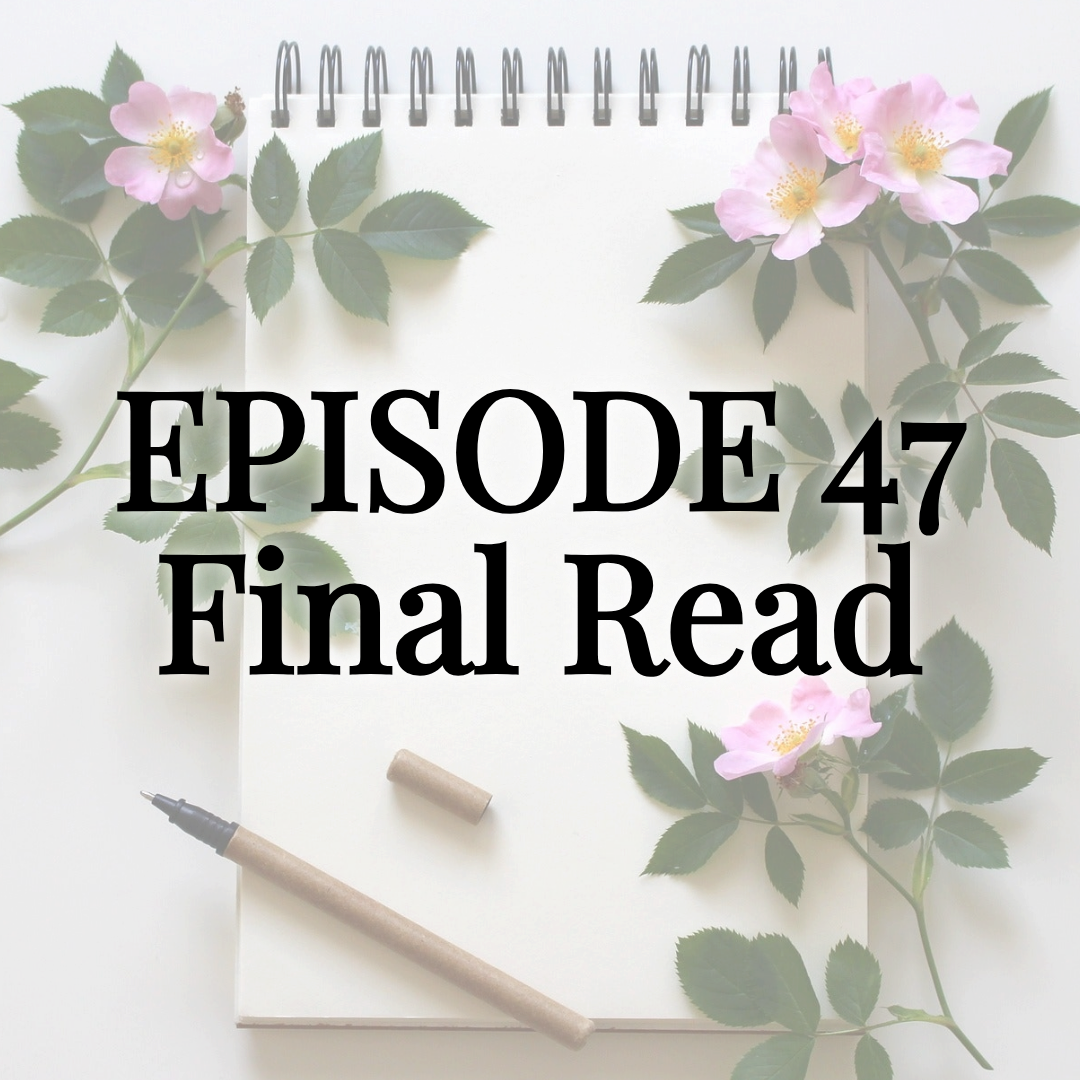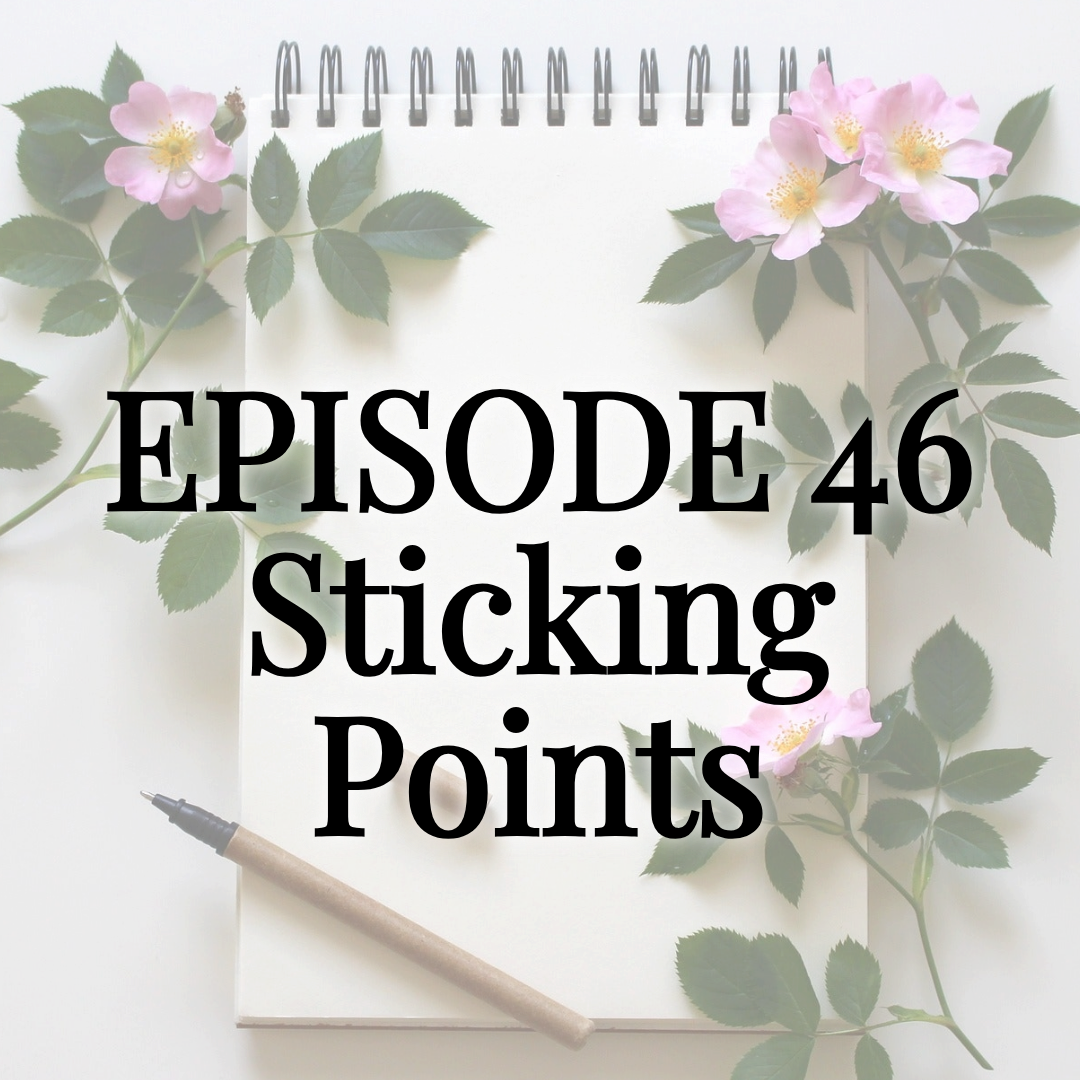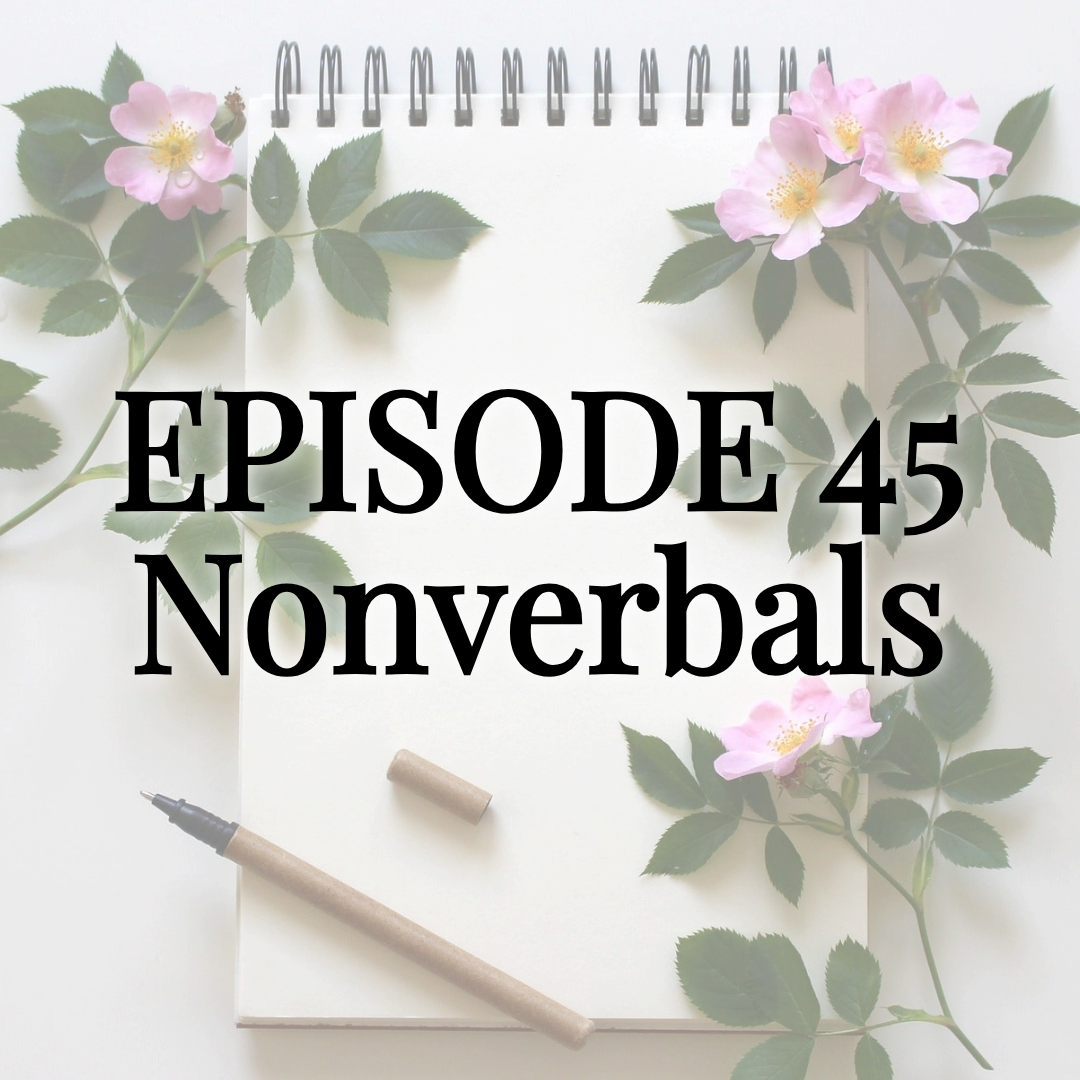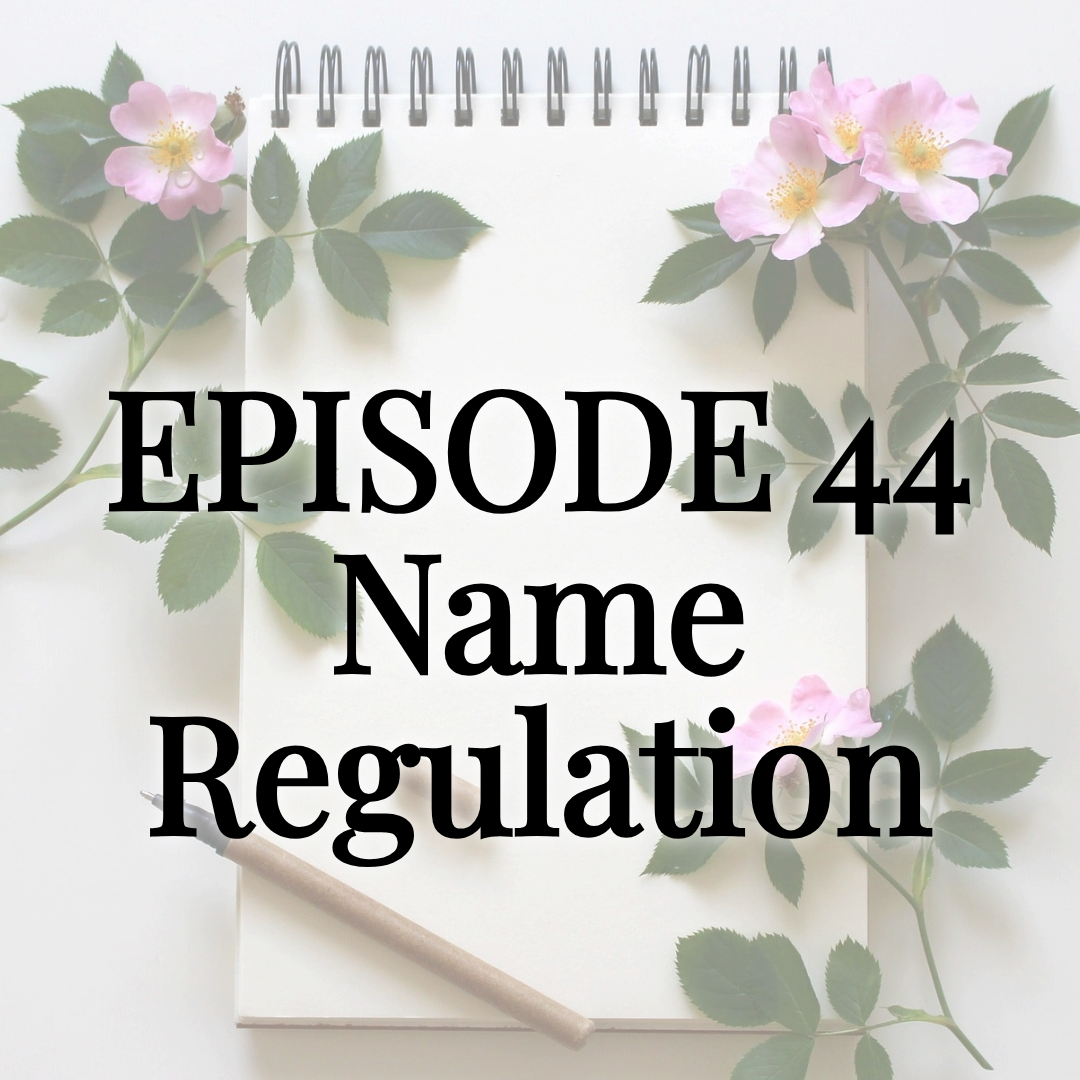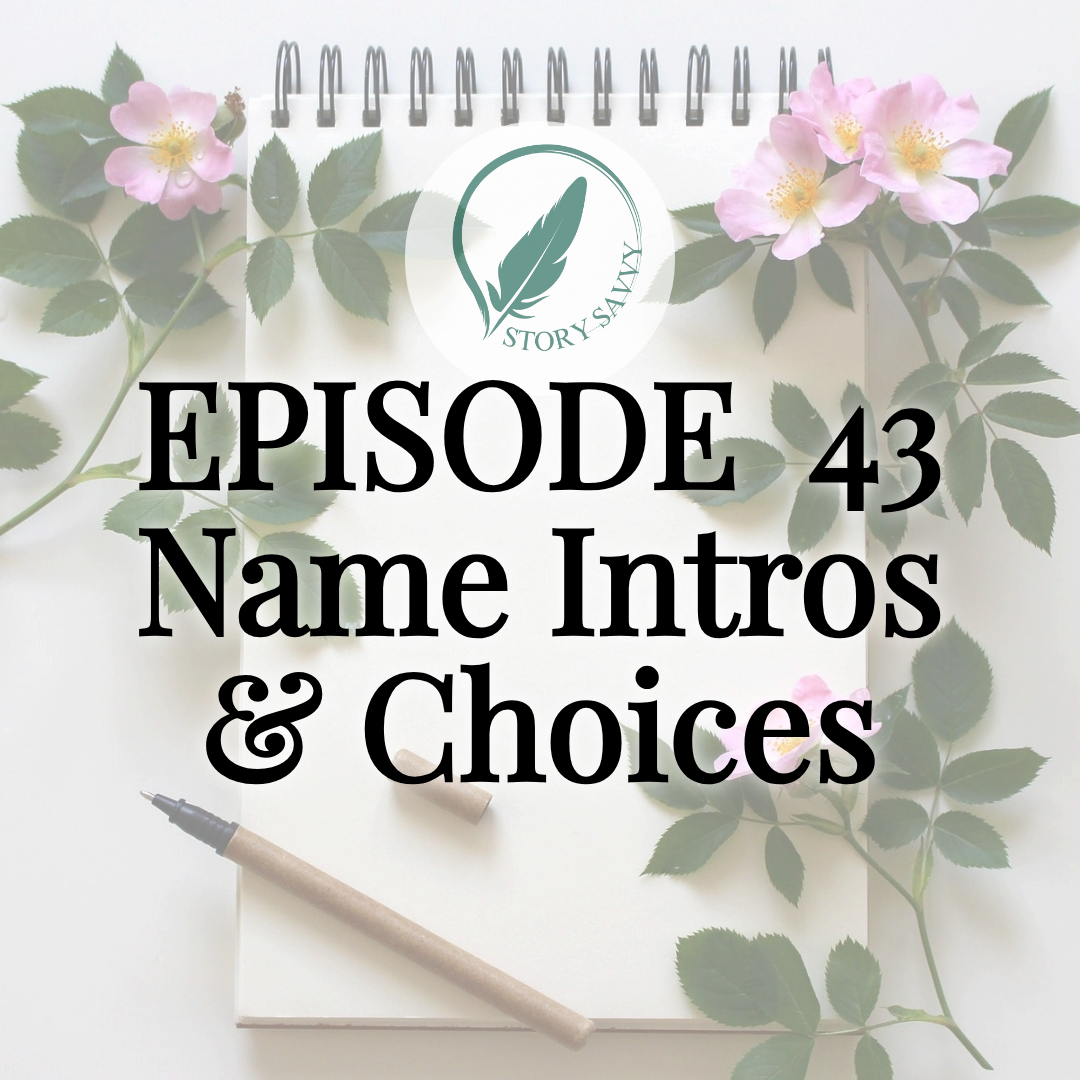Reducing Redundancy: Story Savvy Self-Editing Episode 41
Reducing Redundancy: After-episode thoughts, overview, and transcript…
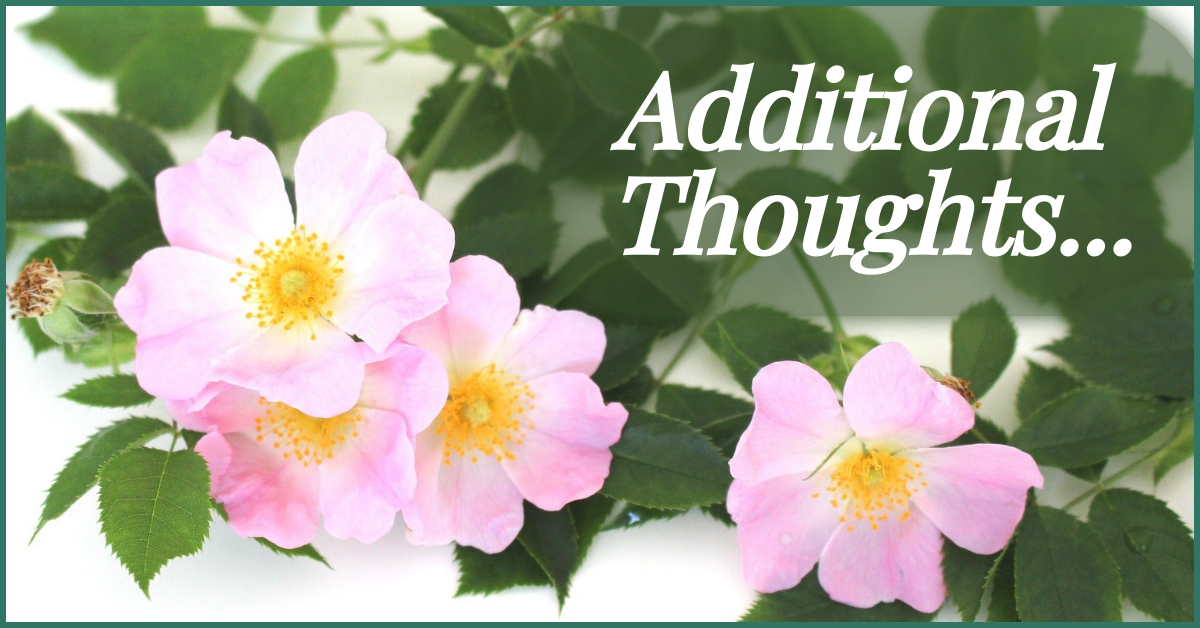
Just for a little added clarity, here’s an example of saying the same thing four times actually spelled out:
Kate fidgeted and avoided making eye contact, her tone nervous. “I’m sorry, I’m just really uncomfortable,” she said apprehensively.
Double dialogue tag aside, you only need ONE of these instances of showing OR telling that Kate is nervous. Pick a favorite, and scrap the rest. So, would you pick 1) her nonverbal cues of fidgeting and avoiding eye contact, 2) describing her tone in narration, 3) having her state in dialogue how she is feeling, or 4) or stating her apprehension in the dialogue tag? Deciding in this exercise might help you make similar calls in your own writing. I would personally choose option 1, because that is more showing than telling, more than the other three options.
Lastly, the other episode in this series referenced to in this one is:
Happy editing!
Episode 41 Overview:
Reducing Redundancy
"Have I introduced any duplicate scenes, scene fragments, or lines in editing which I need to fix? Am I saying anything twice or both telling and showing something when one would do? What words or phrases am I overusing?"
In our Story Savvy Series, this writing podcast for authors dives into how to avoid repetition in writing and cutting word count effectively through intentional revision. With developmental editing advice from Rebecca Hartwell, this podcast for fantasy authors offers clear self-editing tips for writers, helping you polish your manuscript and strengthen your story structure and editing skills.
In this episode of the Story Savvy Self-Editing Series, developmental editor Rebecca Hartwell and aspiring fantasy author Agnes Wolfe dive into the art of eliminating repetition in fiction. Rebecca breaks down how to spot redundant scenes, recognize showing and telling overlaps, and apply practical techniques to cut word count while keeping clarity and emotional impact.
In this episode:
- Understanding what counts as repetition or redundancy
- Recognizing when you’re showing and telling the same thing
- Avoiding word echoes and overused words
- Trimming word count without losing meaning
- Deciding when repetition serves a purpose in storytelling
Recommended Resources:
- Developmental Editing
- Agnes Wolfe: www.agneswolfeauthor.com
- Pro Writing Aid: https://prowritingaid.com/
- Speechify: https://speechify.com/
- The Alexa App: https://www.amazon.com/Alexa-App/b?node=18354642011
See you next week for episode 42: Exposition & Info-Dump: Show vs Tell!
Episode 41 Transcript:
Reducing Redundancy
Rebecca Hartwell: Hello and welcome to the Hart Bound Editing Podcast. This is episode 41 of the weekly Story Savvy series, where we tackle the 52 biggest self-editing topics and tips to help you make your good story great as an aspiring author asks me, a developmental editor, all of the questions that you have wanted to. We've covered a bunch in this series so far, including last week's episode where we took a break week and talked about using AI as an author or an editor. Today, we are going to take a look at reducing redundancy through self-editing.
By the end of this episode, you will hopefully know what does and doesn't count as repetition or redundancy that's worth fixing, and be able to use this tool to reduce your word count and speed up your pacing if either is needed. Joining me to ask all the questions, as always, is my good friend and co-host, Agnes Wolff. Welcome.
Agnes Wolfe: Hi, I'm an aspiring fantasy author who hopes to release her first middle grade fantasy later next year, and also host and founder of Authors Alcove. I'm here today to tackle avoiding repetition in our manuscripts.
I'm probably unusual in this, but I realized that I have written the same scene multiple times in some of my earlier edits. I literally have had two scenes that say the exact same thing in different parts of my manuscript, because apparently in my head, it was such an important scene that I put it in twice. So, by this round in the edits, I feel like I have already caught up with a lot of those issues. So, why did you choose to put this particular topic towards the end of the series, because I feel like I would catch it if it said anything twice.
Rebecca: Sure. If you are in a position where you were originally putting in a scene more than once, then yes, you've probably already caught that. What we're looking for here is more so things that were introduced, duplications that were introduced during the editing process up to this point. And I wanted to still bring it up this late in the series, because I have just seen so many duplicate scenes, or event moments, or just overstating repetition coming in from my clients in their manuscripts. It is absolutely something that some writers have a good eye for catching. But this episode is for those who maybe are struggling with that a little bit more, or need to think about this a bit more intentionally. So, the first consideration is that we aren't just talking about whole scenes or events that happen twice, whether or not it's with the same wording. We are, as you alluded to, well into the polishing stages here, so we are only looking to delete anything that is said twice that doesn't have to be. That might be a whole chapter that you moved long ago in this editing process—so, you know, 9 months ago in this series, maybe you're like, “Okay, this scene doesn't work here, I need to move it over here,” but then you forgot to delete it the first time. Repetition might also be a passage or a paragraph that you rescued from a deleted scene like we've talked about. But then, 3 months later in your process, you forgot that you had already rescued that little gem that you liked, so you rescued it again but added it to a different chapter, and now just that paragraph or that moment is in their twice. But most importantly for this stage in the editing process, I'm encouraging folks to look for the following instances of repetition: The first is where you tell the reader something repeatedly in totally different ways. Sometimes this is two sentences and a paragraph that establish the same thing, only with totally different wording, or two characters saying the same thing in a conversation. It can also be spots where you tell the reader something through a narrative statement, but then also show the same thing more immersively. Or maybe you show your character fidgeting and avoiding eye contact, then you say that their tone is nervous, and then you have them say that they are uncomfortable in their dialogue, and then you use the dialogue tag of, “they asked the thing apprehensively.” That's essentially saying the same thing four different times. So, in all of these cases, the goal in this topic of self-editing is to remove all instances except for one that is your favorite for whatever reason you want to pick favorites by and delete all of the rest so that you're not bogging the reader down in any sense of, “They just said that, why are they saying it again?” And because I've had this conversation with other writers, I will also mention here that if you are double or triple or quadruple stating something because you are afraid the reader is going to miss that vital information or clue, then your approach is fundamentally flawed. Instead of saying it again, say it better. Make that moment more of a turning point for the scene. Add more emotion to it, build up resistance to saying it out loud before it bursts out, that kind of stuff. Saying it once, more impactfully, beats saying it multiple times to make sure that it isn't missed. And that is a pretty solid blanket statement I am comfortable making for pretty much all books. It's also just worth mentioning that if you are both showing and telling the same thing, I generally suggest keeping the showing example and scrapping the telling version of it. You really only need one or the other, not both, and unless you have a strong, specific reason to tell, such as brevity or clarity of your meaning, then showing is more immersive, and so is usually the better choice. The second way that small-scale repetition might show up at this stage in the editing is using the same word too many times in close proximity. I tend to call these “word echoes,” but there are lots of other terms for this. With any word that could easily not come up for a whole chapter, so it's not a every-sentence, every page kind of word—let's say like the word lunch—then using it more than once within, let's say, a paragraph can feel repetitive, and that should be adjusted. But for words that naturally have to be used more frequently—like, let's say, the word “as,” A-S—then the standard is more to avoid using it so often that it's repetitive within a single sentence. Or, so often that the rhythm of its use becomes noticeable within a paragraph or a page. I personally find that listening to writing, be that reading it out loud to myself or using a text-to-speech software, is by far the best and easiest way to catch these word echoes at that microscale. So, circling back around to the heart of your original question, even when you feel confident that you caught all of the repetition in a story, especially at the larger scale, we all have blind spots, especially when we've been busy paying attention to and watching out for all of these other things in the self-editing process. So, taking a moment to focus on nothing but finding and fixing redundancy and repetition is worth doing, even if it's just for an hour. Lastly—and I'm sorry this was such a long answer—repeats of fragments can be much harder to spot than a whole, and this applies to sentences, this applies to moments, to beats, to scenes, whatever. For example, I once edited a manuscript for a client where the writer had accidentally left in the second half of an old chapter following the full new version of that chapter, because they just stopped deleting at a page break or whatever and missed that. So, this is into the final check stage, where you do want to make sure, even if you think you got it all right, that you actually did.
Agnes: And I feel like having a second set of eyes is an important part in this process.
Rebecca: It absolutely can be. And this is one of those topics where outside feedback can be disproportionately helpful. But, it's a point, a topic, where it's really not that much of a burden on that outside reader if a story is in particularly bad shape on this topic. So if anyone listening, or you, are looking for something to prioritize saving themselves time on, to instead really rely on that outside feedback and those outside readers to catch, this topic of repetition and redundancy should be very high on that list. However, the efficacy, the effectiveness of outside feedback in catching this goes down the longer a period of time that feedback read is spread out over. For example, a casual beta reader who reads your book over 5 or 6 weeks won't be able to catch nearly as much of these issues of repetition and redundancy as, for example, I could do doing one full, intense read per week when I'm doing my developmental edits for clients. The longer it's spread out, the harder it is to remember that you read that before. That this scene fragment already came up, that someone already established this plot point, that kind of thing.
Agnes: And are there any tools that you would recommend out there that might help you with this?
Rebecca: Yes, so as I've already mentioned, consuming your writing through any form of audio can be an incredibly helpful in catching repetition or redundancy, which your eyes either don't catch or think looks fine as you're skimming through. These days, a lot of the standard word processing softwares like Google Docs or Word have some sort of text-to-speech function built in, but those voices can sound a little bit jarring and artificial to me, so I also recommend Speechify, which is a dedicated platform for that, particularly the voice called Emma. I think that that is the most natural text-to-speech voice out there. And then, sometimes, just the find and replace or search function can be really helpful with catching these repeats and redundancies. Most writers, including myself, very much so, have some idea of what words they tend to overuse. In my case, it's all variations and uses of the word “eye.” So, whether you do or don't already know what words you personally tend to overuse, you can pay attention to that over time and build yourself a list. Then, in the self-editing stage here, go search for each of those words. It's totally up to you how many individual uses across the whole book count as too many, or how close two of these uses have to be to count as requiring that one of them be changed to avoid that echo feeling. But just do what you can and decide those sort of thresholds for yourself. The last resource that I will mention for this is ProWritingAid. It has several functions for catching redundancy and repetition at different scales, and is, if anything, more sensitive and more picky on this than I suggest authors actually be. Those specific functions within that program are, if memory serves, the ‘overused’ check. It's just called ‘overused’. The ‘all repeats’ check. And the ‘echoes’ check. But again, decide your own thresholds. ProWritingAid's job is to show you all of them, so that you could get rid of all of them, and I don't think that's necessary or healthy, so take it with a grain of salt. And then lastly, for what it's worth, I generally recommend only uploading one chapter at a time to ProWritingAid, but uploading the whole manuscript just once, dealing with that lag and that processing issue, and checking for any repeated phrases of over, let's say, 10 words in a row, just one time can be helpful in this.
Agnes: I have to tell on myself. So, there— I just said one of them—I just said both of them! Okay, so apparently, I use the word “so” and “just” so many times that I literally took my entire manuscript, very recently, and I deleted all of the “so”s. Literally, I put delete all, because I had so many “so”s and so many “just”s that I felt I could do that, and when I went to do my read-through, I only added a handful of them back.
Rebecca: That’s an important point to bring up. Sometimes if you try to delete all, they are actually needed here and there, so yeah, check that.
Agnes: Yeah, but I mean I had, like, almost a thousand of “so”s and “just”s.
Rebecca: Yep, I'm glad you were aware of that in your own writing, that's great!
Agnes: Well, the thousand was actually prior to you reading it. But I noticed that I still, when I add a scene or I adjust the scene, I'm constantly adding “just” and “so” back in. And so, I have to go back, and I'm like, “Okay, delete all from this chapter, re-read this chapter, okay, now it sounds good.” Because you rarely actually need the word “so” and “just”. But anyway, I do have a question about this. So, is the avoidance of repetition or redundancy just a rule for writing in general, or is there more of a reason to extend that?
Rebecca: Both, for sure. It is a rule, but not an arbitrary one. So, here are some of the actual benefits backing up that rule. Number one, it can be really helpful in slimming your word count, which, from my experience, is a goal for more authors than it is the opposite. So, more authors tend to need to slim than authors need to expand their word count. The second advantage is it can help keep your momentum going more smoothly or faster, if you are more constantly moving right along to the next thing instead of rehashing things that have already come up. Number three is it improves your craft skill and professionalism, particularly as it is perceived by readers. And four, it helps avoid unintended moments of deja vu for your readers, which can pull them out of the story as they investigate or wonder if someone moved their bookmark, or if the passage got plagiarized from a different book they read, or if they did read this book years ago and just forgot, that kind of thing.
Agnes: So, we've talked about a lot of different types of repetition. What types of repetition do you see most often in a writer's manuscript?
Rebecca: I'm not sure that I've seen an across-the-board prevalence in any particular direction. But I have found that most of the authors who have a significant repetition or redundancy habit worth mentioning tend to lean always towards larger-scale issues of repetition, such as copying and pasting whole chunks around without double-checking or cleaning them up, or making sure you don't have duplicate scenes, that kind of thing. Or the author will land almost entirely on the small-scale side, where the big-scale stuff is nice and clean but they are both showing and telling a lot of individual moments, or overusing certain words and vocabulary throughout.
Agnes: And I feel like sometimes repetition is important. When would it might be important? Is there a time when it would be important?
Rebecca: Great question, yes. So, here's what I can think of on that right off the top of my head here. First, I mention regularly that if an aspect is worth including in a story, it's worth mentioning at least 3 times. And using similar enough wording each of those times so that it's clear that all of those mentions are about the same thing, or the same person, or the plot point, is an important part of that. Just make sure that your three mentions of whatever it is are spread out in the book. Same thing for character descriptions. If you describe something new about a character every time you mention them, that can potentially get confusing, especially if that particular character doesn't have a lot of page time, so the reader may struggle more remembering the context for the name. Third, I'd say it's important if you have a certain in-world passage with specific wording which is important to the plot or world. This might be a prophecy that has very specific wording. It could be a call to action, like the resistance fighters, whatever their battle cry is. It could be a quote from a song or a book or the like that you invented for your world which is deeply embedded in that character or plot. If the specific wording of that phrase or that song, paragraph, whatever, matters, try to use that word for word 3 times. That's going to pay off for the reader more than it's going to bog them down. Yeah, I'm sure I could come up with more exceptions to that avoid repetition guideline, but those are the big ones that I can think of right now.
Agnes: I know in early drafts I didn't care too much about redundancy, especially in words and stuff at different stages. So, at what point should we start caring about, maybe, or maybe even ignoring the repetitiveness of our writing? I know that early drafts, I did not look for as many as I do in later ones. When should we start being concerned, I guess, is what my question is.
Rebecca: I think you're spot on there. I think that this is an issue that you should not care too much about early on, and I'm bringing it up here in this nearing-the-final-check stage because that's where it's going to do you the most good, because at this point is where you've probably introduced the most redundancy that you now need to go clean up. So, I would say that you can pay some attention to the big-chunk repetition while you are still doing the global-level and scene-level edits that we did earlier in this series, but that's not super important. Definitely ignore repetition issues until you get down into these polishing stages. Even, like I said earlier, if you need to let something slide until after your beta reads and dev edits, this topic is a good candidate for that. However, this needs to be given full attention for a day, let's say, before publication, and ideally before you hire a line editor or a copy editor, or a proofreader.
Agnes: So, why do you think authors tend to re-explain things or restate themselves? Do you feel that is an insecurity that the readers aren't getting it, or do you think it is usually that they just lose track of their own writing?
Rebecca: Either, both. I think it totally depends on the individual. And I think that different forms of repetition tend to come from different places. For example, whole chunks of scenes or whole scenes getting repeated tends to come from a place of disorganization or absent-mindedness. Saying the same thing over and over with different wording within the story—be that throughout the whole story or in close proximity—seems to come from a lack of confidence or anxiety, like you just mentioned. Pretty much any form can come from losing track of what you wrote, or losing track of the tweaks that you already made earlier in editing. And overusing a certain word—so, in my example, the word “eyes”—seems to come from just a pattern of language that everyone develops for themselves over their lifetime, over their growth as a writer, or being predisposed towards highlighting a certain sense or emotion, like I think is the case with my obsession with describing where people are looking and the look in their eyes and that kind of thing. It really just depends. And if naming the underlying cause for patterns of repetition that you catch in your own writing is helpful, by all means, explore that. But I personally think that for most folks, just recognizing those glitch patterns, or one-offs, fixing what needs to be fixed, and moving right along is probably more productive.
Agnes: I know with myself, I wanted to have my story start earlier than it did. I kind of knew that even before you edited and you just kind of confirmed what I needed to do, so I had tried editing those 5 chapters, trying to condense them into two chapters many times, and what finally worked was I took colored pencil and a highlighter, and I highlighted different things, and then I was able to see a lot of repetitions. So, with my cutting back on the repetitions, it helped with pacing. What are some other reasons why people might want to trim their story?
Rebecca: So, I feel like we went over this a little bit earlier, but I do have more thoughts here. First of all, many editors charge by word count, so fewer words means a lighter financial burden for getting the manuscript edited. Number two would be similar considerations around potentially getting an audiobook made for your story down the road, which typically charge per hour of finished audio, and you can also consider the printing costs to maximize the profit that you can get from selling each individual book. The third benefit to using this specifically to slim word count would be, in both indie and traditional publishing, genres have word count and length “Goldilocks zones,” which we did a whole episode on earlier in the series. More writers tend to end up longer than is acceptable than I see authors ending up too short. So, slimming down is often needed to fit within your market, or to get interest from an agent or a publisher. The most common pacing issue is things slowing down too much. And so removing these slower, repetitive, or otherwise less important or interesting bits or versions of imparting information can help things move forward better. And then lastly, the more you slim, the fewer words you have to go through in your next round of edits, potentially saving yourself time and frustration. I'm sure there's more, but yeah, those are the highlights.
Agnes: Can I have to ask, because you mentioned audiobooks, are you planning on turning your books into audiobooks?
Rebecca: At some point, yes, but that is unfortunately not remotely on the horizon yet. So, when I have the spoons, I'm thinking I might wait until I have finished publishing all 9 books in the series, and then get them kind of all put together by one narrator, since I'm personally very bothered when the narrator changes in the middle of an audiobook series, so yes, but not imminently in any kind of sense.
Agnes: I just had to ask because I am on the third book, and I want to read them, but I have trouble sitting down and just reading. I love to listen to audiobooks, and so I was like, “Oh, if she has that on the horizon, that would be very good for me.”
Rebecca: So, random little tidbit for folks, you can download the Alexa app onto any kind of phone. I have an iPhone, and it works great, and you can just voice-to-text tell her, “Hey, Alexa, read me this book by this author,” and she'll read it to you, and it's not a bad voice at all. So, that's how I turn books that don't have audiobooks into audiobooks for myself all the time.
Agnes: I'm so glad I asked! Because I've been doing a lot more audiobooks than I have been doing actual reading books lately. Anyway, I want to wrap up with the last question. Can you go a little more into what you meant when you said you don't want to both show and tell, even if it's with a completely different wording?
Rebecca: Yes, in fact, I have so much to say on this topic that we are going to do that as our whole next episode for next week. So, I will avoid being repetitive or redundant, and just covered it all in that episode.
Agnes: Awesome! Well, thank you so much. I look forward to next week, and thank you for helping with this particular topic.
Rebecca: Absolutely! Yeah. So, next week, we will continue in this theme of a couple of episodes here of slimming things down in healthy ways, and talk about avoiding and fixing exposition and info dump, which are very much related to that show-don't-tell. For now, I would really like to thank everyone following along with this series. If you know any other authors who are nearing the end of their first draft, or struggling with revising or rewriting their novel, please send them this podcast. The more authors that we can help understand and finish the process of self-editing, the better and the happier I will be. Thank you, Agnes.
Agnes: And she's an amazing developmental editor.
Rebecca: Thank you.
Agnes: Thank you!
Rebecca: Thank you so much for listening to the Hart Bound Editing Podcast. I look forward to bringing you more content to help you make your good story great so it can change lives and change your world. Follow along to hear more or visit my website, linked in the description, to learn how I can help you and your story to flourish.
See you next time!
